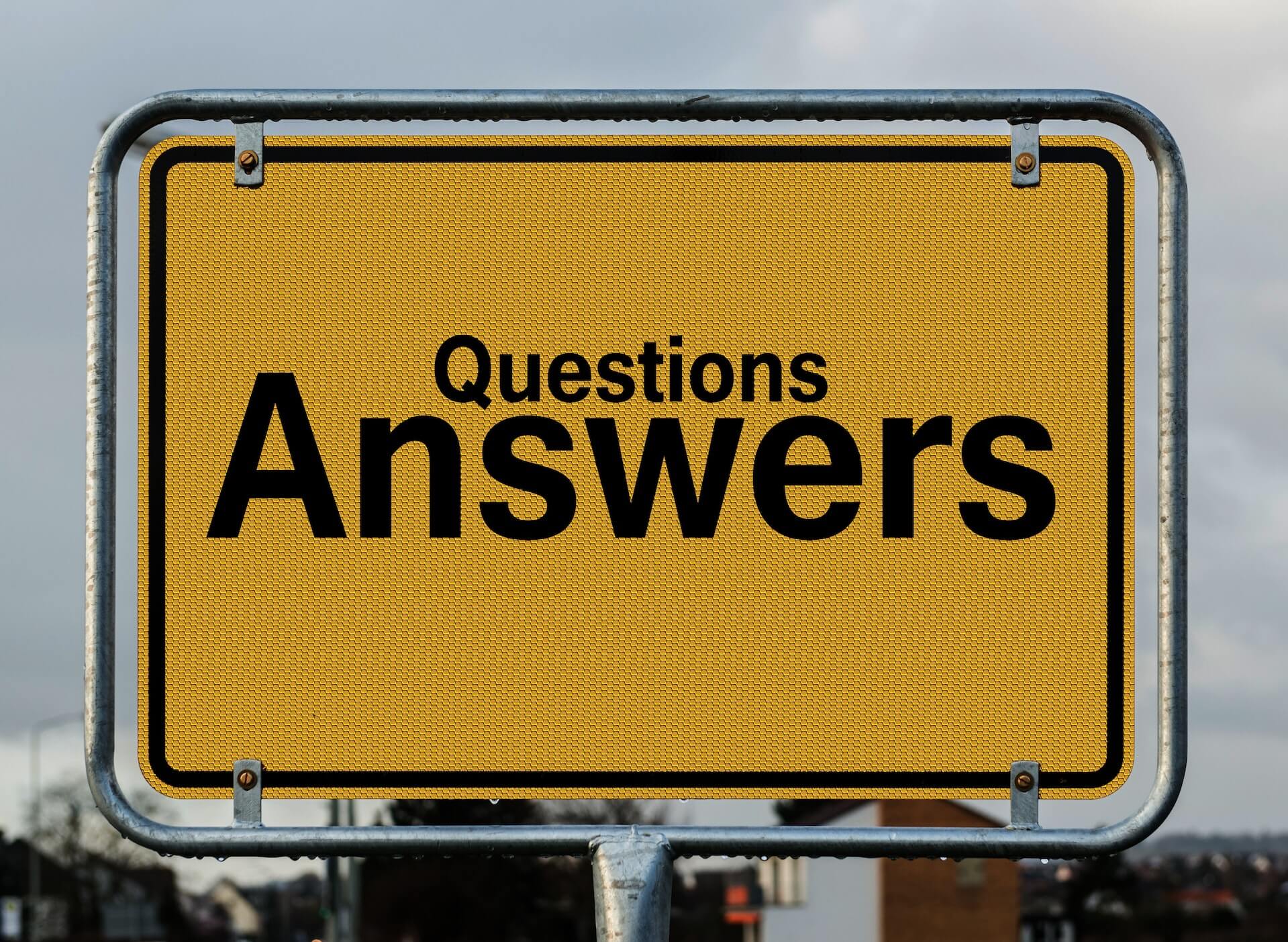Fillable Form SS-4 or Application for EIN
Form SS-4, Application for Employer Identification Number (EIN) is what employers, sole proprietors, corporations, partnerships, estates, trusts, and individuals use to apply for an EIN. The EIN is used for tax filing and reporting.
What is Form SS-4?

Form SS-4, officially the Application for Employer Identification Number (EIN), is an Internal Revenue Service form to request an EIN used by the IRS to designate a business identifying number. An EIN is a 9-digit number series assigned to a business for tax filing and reporting purposes. The following may apply for an EIN:
- Employers (including corporations, partnerships, and sole proprietors)
- Estates
- Trusts
- Government agencies
- Nonprofit organizations,
- Certain individuals (including sole proprietors) and other entities listed on Form SS-4
EIN is not an alternative to a Social Security number. It is used for business activities only. EIN number is offered for Free by IRS. No fees should be paid upon request of an EIN number.
Sole proprietors only need one EIN no matter how many businesses they operate. In case of a change of address, file Form 882 to report the change to IRS. Federal taxes on a business bank account or on businesses in general can be filed and paid electronically. Applicants who are residing outside the United States of America or its possessions cannot apply for EIN online. They may apply via telephone or other methods listed.
How to fill out Form SS-4?
Get a copy of the SS4 Form or Application for EIN template in PDF format.
Here are the important details to provide when applying:
- Your business's legal name
- The classification or entity of your business (sole proprietor, partnership, corporation, or any other similar entities)
- The reason for the application
- The date you started or acquired your business
- The closing month of your accounting year
- The number of employees you project to have in the next year
- Whether your annual payroll be under or over $1,000
- The line of business/industry you are in
- If you have never applied for an EIN before
Line 1: Legal name of entity
Provide the legal name of the entity as mentioned in any other legal document or card. This information is required.
Line 2: Trade name of business
Provide the name of your business if different from line 1.
Line 3: Name of Executor, administrator, trustee, “care of”
The format should be First Name, Middle Initial, and Last name.
Lines 4a–b: Mailing address
If the address is outside the United States, provide the city, province, or state, postal code, and name of the country. You must not abbreviate any name. Provide the address of executor, trustee, or "care of" person, if correspondence is to be made by others.
Lines 5a–b: Address
Provide your complete address.
Line 6: County and state where principal business is located
Provide the location of your principal business.
Line 7-a,b: Responsible party
Provide the name of the responsible party based on the type of entity.The "responsible party" of an organization is the person who has a level of control over the funds of the company. He or she controls the direction and disposal of funds and assets.
- If the business is a corporation, then provide the principal officer’s name.
- If the business is a partnership, then provide the general partner’s name.
- If the business is solely controlled by the owner, then fill in with the owner’s name.
- If the business is a trust, then provide the principal officer’s name.
Line 8a
Select “Yes” or “No” depending on your circumstance. If you select "Yes," specify your LLC member number.
Line 8b
If the entity belongs solely to a couple who decides to treat the company as a disregarded entity, enter "1."
Line 9a: Type of Entity
Select the box that has the exact description for your company type (Sole proprietorship, Estate, Partnership, Plan administrator, Corporation, Trust, Personal service corporation, Military or National Guard, State or local government, Church or church-controlled organization, Farmers’ cooperative, Federal government, REMIC, Indian tribal governments/enterprises or other nonprofit organization). If not included in the choices, select others and specify it in the space provided.
Line 10: Reason for applying
Select one reason for applying EIN (started a new business, changed the type of organization, purchased going business, hired employees, created a trust, compliance with IRS withholding regulations, or created a pension plan).
Line 11: Date business started or acquired
Provide the date you started or acquired your business in Month, day, year format.
Line 12: Closing month of accounting year
Provide the closing month of your accounting year.
Line 13: Highest number of employees expected
Provide the highest number of employees expected in the next 12 months. If no employees are expected, write “0” and do not answer line 14.
Line 15
Enter the first date wages or annuities paid in month, day, year format.
Line 16: Principal activity of business
Select the box that gives the most precise description of the principal activity of your business.
Line 17
Enter the major product or service your business provides or sells.
Line 18
Select the appropriate answer according to your EIN status. If you select "Yes," write the previous EIN in the space provided.
Start filling out a SS-4 or Application for EIN sample and export in PDF.
Frequently Asked Questions About Form SS-4

Where to submit Form SS-4?
You may file SS-4 online by fax or by mail. You can complete the SS-4 on the IRS online portal. Once you submit the application you will have to wait to receive your EIN.
If you choose to file via mail, choose from the following:
If your business address is in the U.S., use this address:
Internal Revenue ServiceAttn: EIN OperationCincinnati, OH 45999
If your business address isn’t in the U.S. or you don’t have a place of business, use this address:
Internal Revenue ServiceAttn: EIN International OperationCincinnati, OH 45999
Once mailed, you can expect to get your EIN back by mail within four weeks.
If you choose to file this form via fax, choose from the following:
If your business address is in the U.S., use this number:
Internal Revenue ServiceAttn: EIN OperationCincinnati, OH 45999Fax: (855) 641-6935
If your business address isn’t in the U.S. or you don’t have a place of business, use this number:
Internal Revenue ServiceAttn: EIN International OperationCincinnati, OH 45999Fax: (855) 215-1627 (within the U.S.)Fax: (304) 707-9471 (outside the U.S.)
Provide your fax number to the IRS. You will receive your EIN via fax within four business days.
How do I get a copy of IRS Form SS-4?
You can get a copy of IRS Form SS-4 from the official IRS site or any PDF document filler. You can also get a copy of Form SS-4 by calling 1-800-829-4933 (TAX FORM).
The SS4 form is available as a PDF document or as a DOC file.
What is SS-4 Form used for?

The purpose of the SS4 Form is to provide a record of a business's Employer Identification Number (EIN) and the name under which the business operates.
The Internal Revenue Service, better known as the IRS, is tasked with receiving funds from citizens for government programs, such as social security. In order to receive those funds or any other benefits, the IRS must have an accurate record of a citizen's income. When a business is formed, it must apply for an Employer Identification Number (EIN) through Form SS-4.
An EIN allows the IRS to keep track of all sources of income associated with that company or individual. IRS Form SS-4 provides information on how an EIN is obtained and the name under which the business operates so the IRS is able to accurately record transactions.
What is the difference between Form SS-4 and Form W9?

IRS form SS-4, Application for Employer Identification Identification Number, is the form used to apply for an EIN from the IRS. The EIN application using the IRS EIN form may be done by a representative — a responsible party or a responsible party's authorized representative. There are no special restrictions that limit the ability of anyone to file this form on behalf of someone else.
A Form SS-4 application is used when you need to have an Employer Identification Number and you do not already have one. Form SS-4 is most often used by businesses just starting up, but it may also be submitted to obtain a new EIN if the business has been sold or transferred from an existing sole proprietorship or LLC which had been assigned an EIN.
On the other hand, employers use IRS Form W9, Request for Taxpayer Identification Number (TIN) and Certification, to request a TIN from their employees. Employees use it to provide their Employer with a TIN to be used for reporting income on an IRS form 1099.
How long does it take to apply for an EIN?
The EIN application processing time takes at least around four weeks before the IRS can be expected to have information for the responsible parties. It is recommended to wait for more than a month before calling the IRS to follow up.
It is possible to fast track your EIN operation and get your EIN immediately (or at least reduce the wait time) by going to the IRS site and asking how to apply to have your application fast tracked.
How much does it cost to get an EIN?
Getting an EIN does not cost anything, however, it can take a few days or even weeks for responsible parties to receive their EIN by mail. The process of applying for one, however, is free.
Can I get a copy of Form SS-4 online?
Responsible parties can get a copy of the IRS form SS-4 online at the official IRS website or any online library of legal documents and complete it to the best of your ability.
Who needs to get an EIN?
You need to get an EIN if you want to be able to hire employees, including yourself, and the nature of your business is such that you are classified as partnership sole proprietorship, corporation, or any other entities that pay taxes. You also need an EIN if you have a nonprofit, estate, trust, farmer's cooperative or plan under Section 457(b).
If you are not planning on hiring any employees, then you do not need an EIN.
There are several also reasons why you may want or need an EIN even if you don't plan on hiring employees. Perhaps the most practical reason is that many banks require one before they will allow you to open a checking account for your LLC. The IRS also requires all businesses to report their income, even if they do not have any employees, so it is helpful to have an EIN.
Can I verify EIN online?
You can verify your EIN online by using the IRS EIN Verification System. The IRS EIN Verification System is an online tool that provides information on Employer Identification Numbers (EINs). When you enter an EIN in the system, it will search its records and provide any information that it has pertaining to that EIN.
Can I file Form SS-4 online?
You can apply for an EIN online via the official IRS website. You must have all the required information to apply.
You can also apply by mail, fax, or in person at your local IRS office.
How can I get a free EIN?
Applying for an Employer Identification Number is free.
What should I know about applying for an EIN?

There are a few things you need to know about the EIN application process before you apply online, walk into your local IRS office, or use the mail-in form SS-4.
First and foremost, an EIN is not the same as a Social Security Number (SSN). You do not need to have an EIN if all you're doing is basic tax filing activities, like filing a tax return or applying for a bank account – you only need to apply for an EIN if your business is going to have employees, will operate as a corporation, partnership, LLC or trust, or some other form of business that's required by law to have a taxpayer identification number.
You'll also want to know that the EIN is not your business' replacement for a Social Security Number. You will still use your SSN to pay taxes and interact with the IRS, even if you also have an EIN. Your employees will be considered the responsible party for their own SSNs as well – and the first time they do anything with the IRS involving money, like filing a tax return, they'll have to use the SSN they've been issued, not their EIN.
That brings us to a third thing you should know. It's a bad idea to apply for an EIN online — especially if you're filing as a single-member LLC. The IRS website states that applying online "may subject your EIN to public disclosure." That means anyone with internet access would be able to find the number by searching the IRS's database, which could put you at risk for identity theft or other scams.
How long is an EIN number?
An Employer Identification Number (EIN) is 9 digits long. This number has a fixed length of 9 characters. The first two digits are always the 9th and 10th digits of the number assigned to a business. The rest of the EIN is determined by how long it has been since that company was formed. Every three months, the IRS will assign every newly formed or existing business structure an EIN with a new first two digits.
Is EIN the same as a business tax ID?
Yes, an Employer Identification Number is the same as a business tax ID. Business Tax ID or EIN is a federal tax id number that's used to identify a business. This identification number is required for legal purposes, such as filing taxes and opening bank accounts.
In the US this number must be obtained from the Internal Revenue Service (IRS) in order to comply with applicable laws requiring businesses to identify themselves to the federal government.
What is the difference between an EIN and an SSN?
A Federal Tax ID Number or also referred to as an Employer Identification Number (EIN) is issued by the Internal Revenue Service (IRS). A Social Security number (SSN) is issued by the Social Security Administration. The SSN is used for tax filing purposes and other government reporting, but can't be obtained online like an EIN.
An EIN is used to identify a business entity. In the US this number must be obtained from the Internal Revenue Service in order to comply with applicable laws requiring businesses to identify themselves to the federal government. Your business may already have an EIN and not need to obtain another one if that's the case then you won't need an SSN.
How do I contact the IRS if I spot an error in my SS4 Form?
If you come across errors in your tax reporting or EIN details, it is crucial to contact the IRS as soon as possible in order to resolve them as soon as possible. Their contact details will be available on the IRS site, and depending on your needs, you may contact one of their many support lines, such as their EIN assignment line, their specialty tax line, or a general line.
Remember, rectifying tax errors can take some time, so it's best to take action as soon as you discover a mistake.
Are all businesses or organizations required to have an EIN?
The only business or organization types that are required to have an EIN are those that are qualified as:
- Non-profit corporation — If your business is a non-profit corporation, you need an EIN to file your taxes, apply for grants and loans, and open a bank account. Non-profit corporations have some advantages when applying for certain licenses and permits with the federal government. They are also exempt from some state and local taxes.
- An organization formed in a foreign country or U.S. possession — If your business was formed in a foreign country or U.S. possession, you will need an EIN to file your taxes, open a bank account, apply for federal grants and loans, and more.
- A single-member limited liability company (LLC) — If you are the sole owner of an LLC that is disregarded as a separate entity for tax purposes (e.g., it has only one member), you will need an EIN to file your taxes, open a bank account, and apply for federal grants and loans.
- A non-electing farming LLC — If you are the sole owner of a farming LLC that is not an electing farm, you will need an EIN to file your taxes and apply for federal grants and loans.
- An electing small business trust (ESBT) — If you are the trustee of an ESBT (also known as a "grantor trust"), you will need an EIN to file your taxes, open a bank account, and apply for federal grants and loans.
- An estate — If you are the executor or trustee of an estate (the person who is in charge of the deceased person's property), you will need an EIN to file the deceased person's final tax return and open a bank account.
- A non-U.S. partnership — If you are a general partner in a non-U.S. partnership, or if your U.S. partnership has one or more partners that are non-U.S., you will need an EIN to file your taxes and apply for federal loans and grants.
- A non-U.S. corporation — If you are a shareholder, officer, or director of a non-U.S. corporation, you may need an EIN to file your taxes and apply for federal loans and grants. You will also need an EIN if you have a fiscal year other than the calendar year.
- A U.S. branch of a foreign corporation — If your business is a U.S. branch of a foreign corporation, you will need an EIN to file your taxes and open a bank account. You must also file information returns with the IRS by certain dates after July 1st of each year.
- A non-electing real estate investment trust (REIT) — If you are the trustee of a non-electing REIT, you will need an EIN to file your taxes and apply for federal grants and loans. You must also file information returns with the IRS by certain dates after July 1st of each year.
- A trust other than an estate — If you are the trustee of a trust or custodian of a sense of security or custodial account, you will need an EIN to file your taxes and apply for federal grants and loans. You must also file information returns with the IRS by certain dates after July 1st of each year.
- A partnership required to file Form 1065 — If you are a partner in a partnership that is required to file Form 1065, you will need an EIN to file your taxes and apply for federal grants and loans. You must also file information returns with the IRS by certain dates after July 1st of each year.
- A government entity or nonprofit organization — If your business is a government entity, including the U.S., one of its states, Puerto Rico, the District of Columbia, an Indian tribal government, or any political subdivision thereof (e.g., city), you will need an EIN to file your taxes, apply for federal grants and loans, and open a bank account.
- A nonprofit organization (including churches) — If your business is a nonprofit organization (other than certain private foundations) or church, you will need an EIN to file your taxes and apply for federal grants and loans. You must also file information returns with the IRS by certain dates after July 1st of each year.
- An exempt private foundation — If you are the trustee of an exempt private foundation, you will need an EIN to file your taxes and apply for federal grants and loans. You must also file information returns with the IRS by certain dates after July 1st of each year.
- A non-U.S. trust — If you are a non-U.S. trustee of a non-U.S. trust, you may need an EIN to file your taxes and apply for federal loans and grants. You must also file information returns with the IRS by certain dates after July 1st of each year.
Can a business operate without an EIN?
Technically, a business without an EIN cannot operate well. To operate a business, You must get an EIN to hire employees, open up business bank accounts, acquire contracts, apply for business licenses and permits, incorporate your LLC or submit sales tax reports. But unless you have revenue of at least $5 million or expect to have employees in the near future, you can still get by without an EIN number.
Is EIN important to start a business?
An Employer is important to start a business because it functions as the business's identifying number, which is used by businesses to identify themselves in dealings with the government. Also, it is important for EINs to be included on documentation about an individual or business entity that is mailed out because this information is used when applying for loans and other financial aid.
Do I need an Employer Identification Number if I am a sole trader?
Most sole proprietors, partners, and members of LLCs do not have TINs because their individual income tax identification number is the same as their Social Security Number.
What are the advantages of having an Employer Identification Number?
Some of the advantages of having an EIN are:
- An EIN is a unique identifier that differentiates your business from any other business. If you have a sole proprietorship or a partnership, you should use this number when filing taxes. It would be used instead of using your social security number.
- This number is beneficial to sole proprietorships and partnerships because it is only used when filing with the IRS. If you have a sole proprietorship or a partnership, a social security number is required on tax forms, and in most cases, it may be used for personal identification purposes as well.
- Sole proprietorships, partnerships, and certain other entities with an EIN can deduct business expenses from taxes. A social security number cannot be used for any deduction purposes. This is because it has to be used only on tax forms that do not pertain to deductions.
- Sole proprietorships or partnerships that have an EIN are eligible for small business benefits, such as extra lines on the business owner's insurance policies. These types of businesses can also receive discounts on bulk purchases, such as buying in bulk at a grocery store.
- When using an EIN for a business, you have the option of being taxed as an S-corporation or a standard corporation. You can't do this if you use your social security number instead of an EIN.
Keywords: ss 4 ss 4 form form ss-4 irs ss 4 irs ss4 form ss4 irs gov form ss4 irs ss 4 form EIN ss4 EIN ss4 SS4












